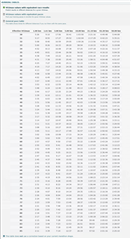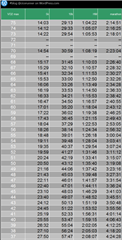I am extremely concerned. For some time now I have noticed that the amount of data that Garmin handles is flowing as if it were out of control, lacking in consistency.
Here is an example: the race forecast gives me an estimated time of 52:54 for 10k, while the coach's plan tells me that it is unlikely that I will finish the 10k in 57:00.
Is there any reason that explains this?




